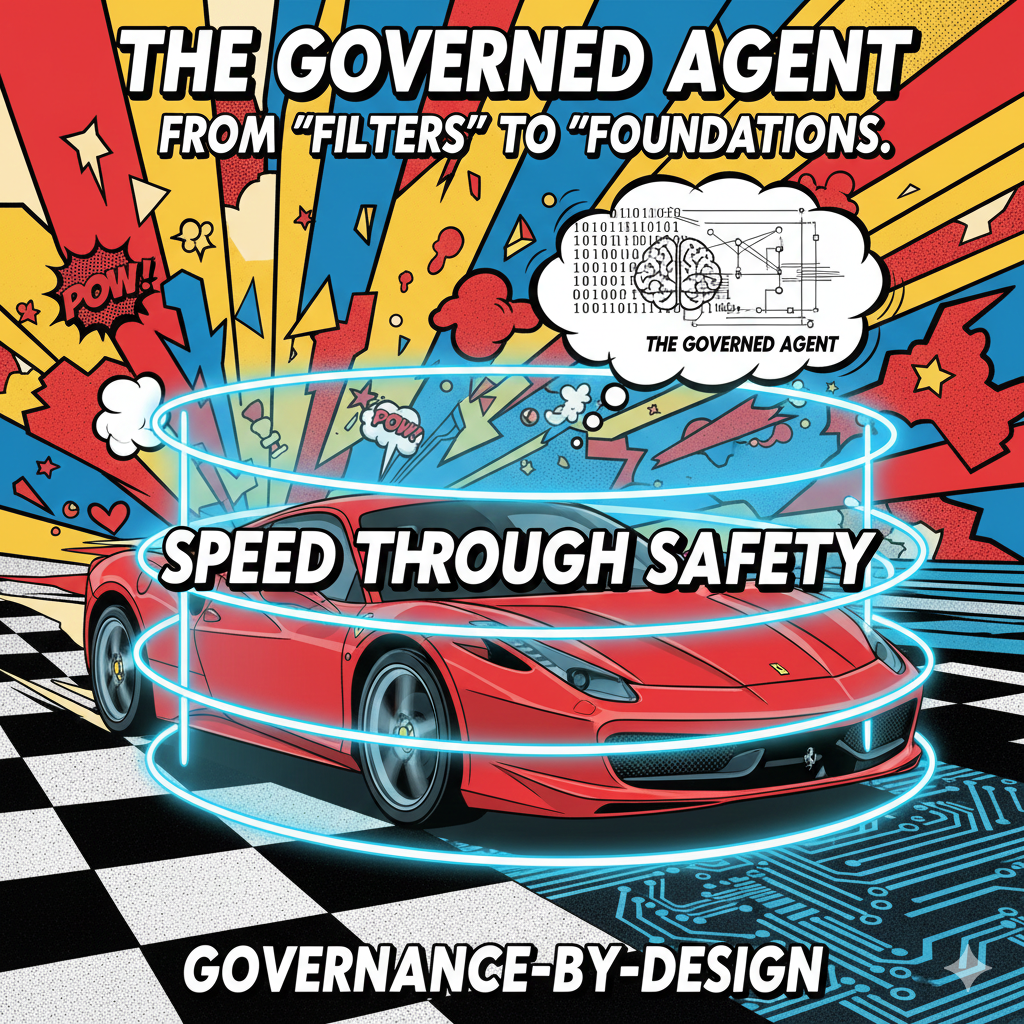
From "Filters" to "Foundations": Why the Post-Hoc Guardrail Is Failing the Agentic Era
Most enterprises govern AI like catching smoke with a net. They wait for a hallucination, a misaligned response, or a brand violation, then they write a new rule. They audit the logs after the damage is done. They implement a keyword filter. They add a content policy. But they have never asked the question that matters: at what point in the process should the guardrail actually kick in?
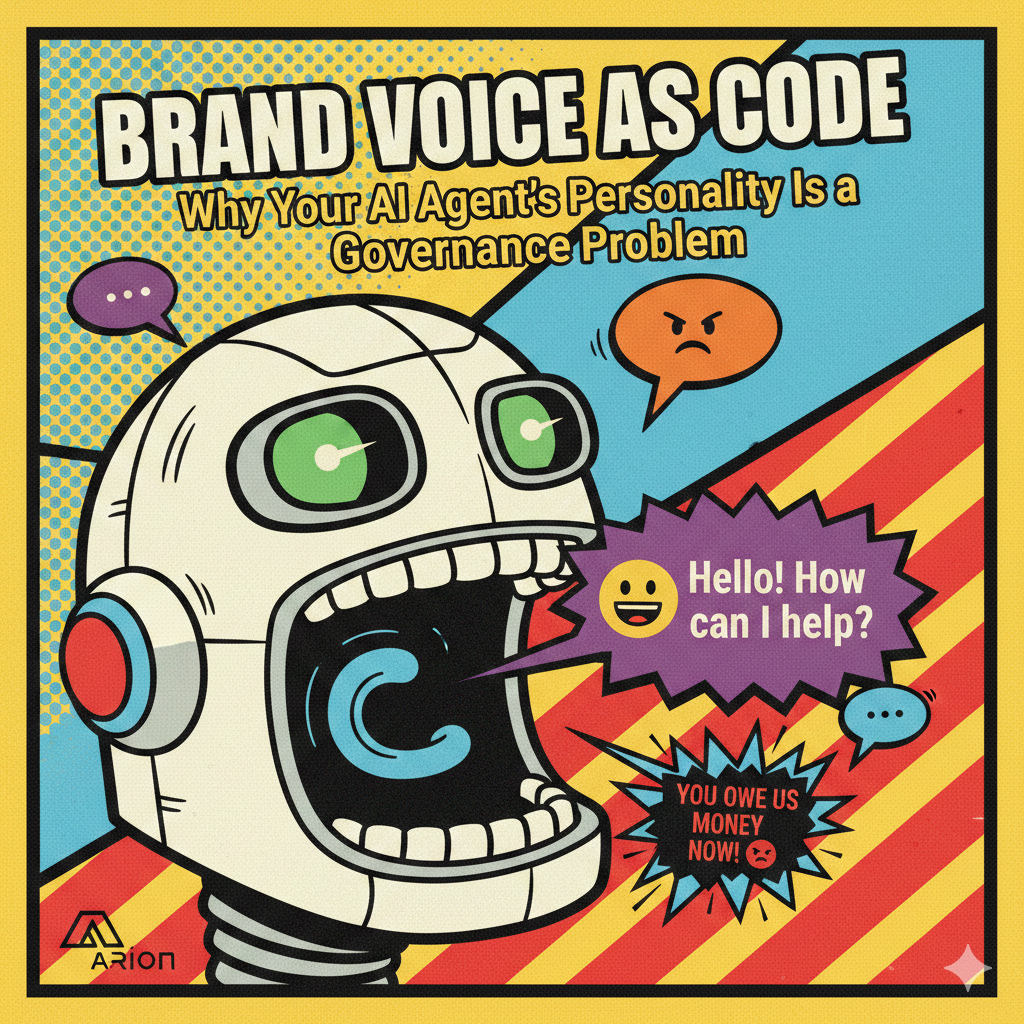
Brand Voice as Code: Why Your AI Agent's Personality Is a Governance Problem
The new frontier of enterprise risk. The biggest threat to your brand is no longer a data breach or a rogue employee on social media. It’s an AI agent that is technically correct but emotionally illiterate, one that follows every rule in the compliance handbook while violating every unwritten norm your brand has spent decades cultivating. The conversation around AI governance has focused almost entirely on data security, model accuracy, and regulatory compliance. Those concerns are real and important. But they miss a critical dimension: personality. How your AI agent speaks, empathizes, calibrates tone, and navigates cultural nuance is not a "nice to have" layered on top of governance. It is governance.
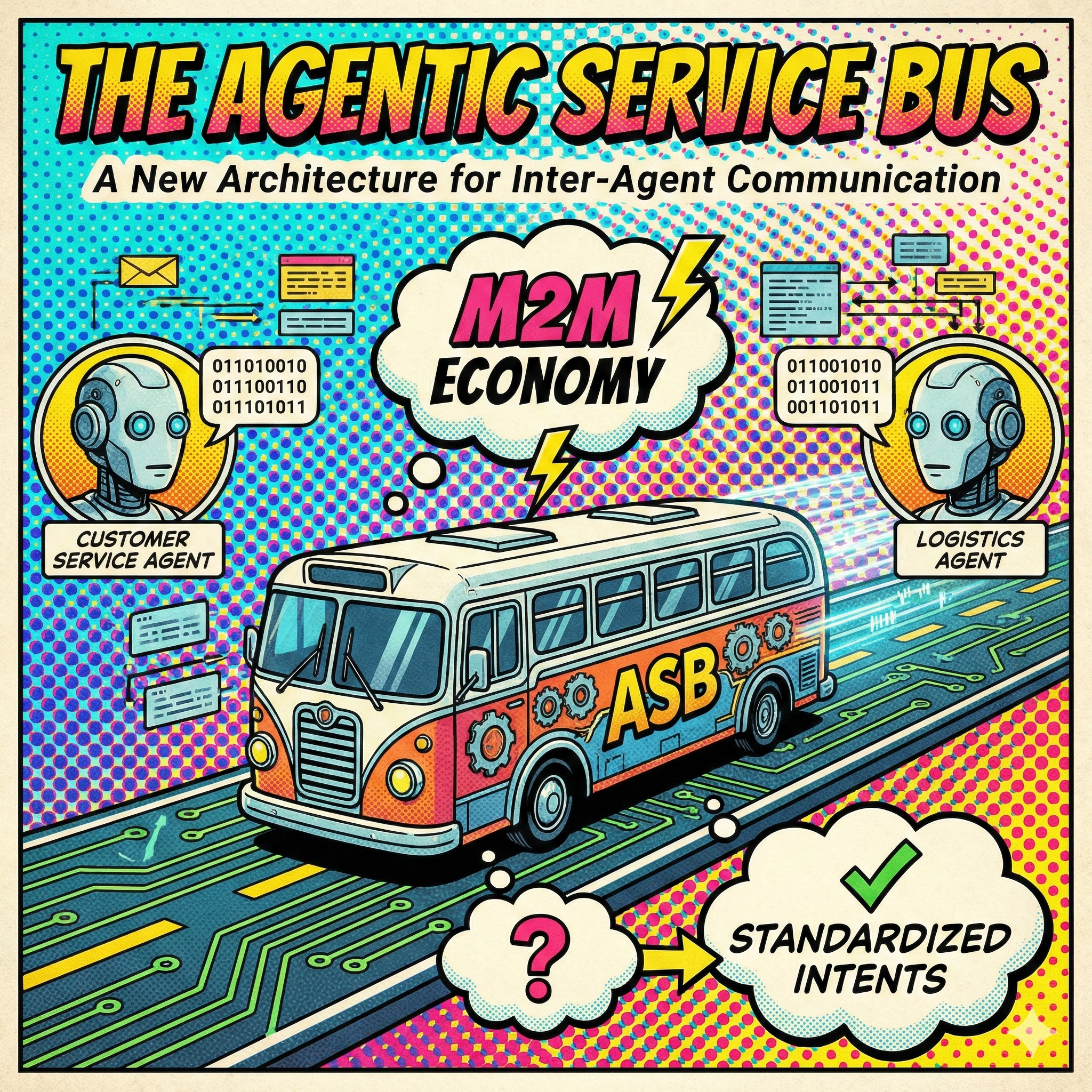
The Agentic Service Bus: A New Architecture for Inter-Agent Communication
As enterprises deploy more AI agents across their operations, a critical infrastructure challenge is emerging: how should these agents communicate with each other? The answer may reshape enterprise architecture as profoundly as the original service bus did two decades ago.
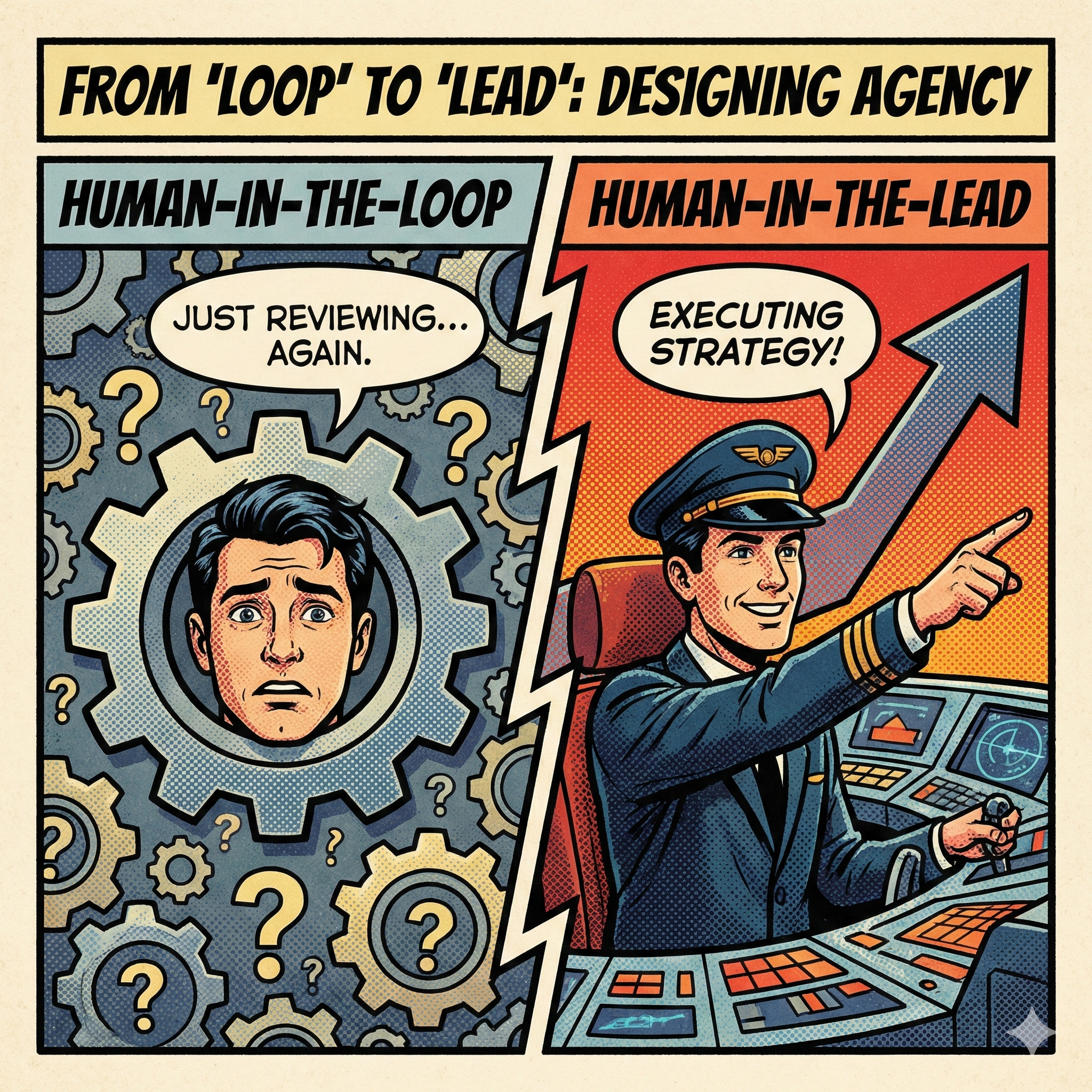
From "Human-in-the-Loop" to "Human-in-the-Lead": Designing Agency for Trust, Not Just Automation
If we want to scale agentic AI, we need a different model. We must stop treating humans as safety nets reacting to AI outputs and start treating them as pilots directing AI capabilities. This is the shift from "Human-in-the-Loop" to "Human-in-the-Lead."
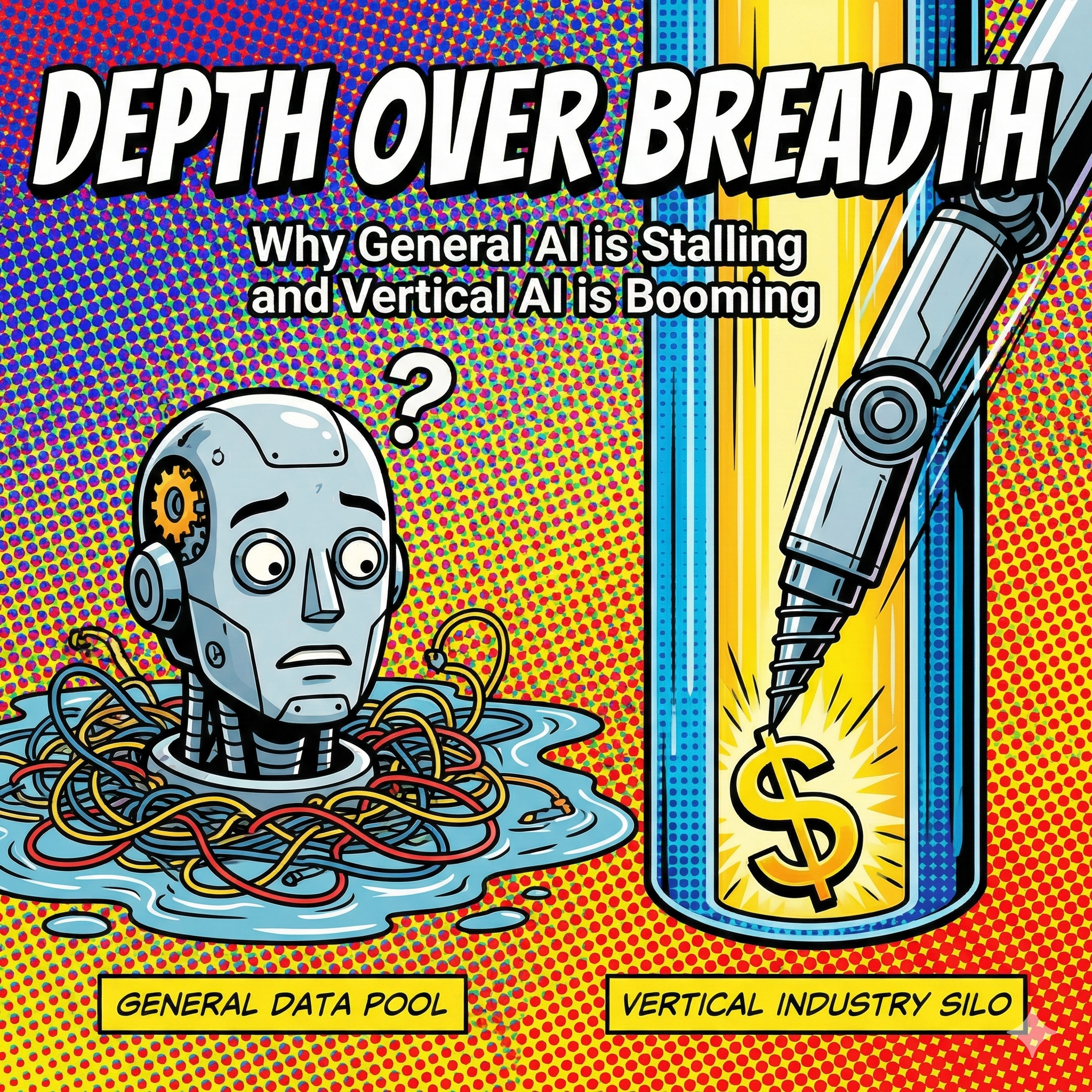
Depth Over Breadth: Why General AI is Stalling and Vertical AI is Booming
The "Generalist Era" of AI (ChatGPT, generic copilots) is ending. 2025 marks the pivot to the "Specialist Era" (Vertical AI), where value is captured not by broad knowledge, but by deep, domain-specific execution. The $3.5 billion spending figure is the canary in the coal mine; signaling a massive capital flight toward tools that solve expensive, specific problems rather than general ones.
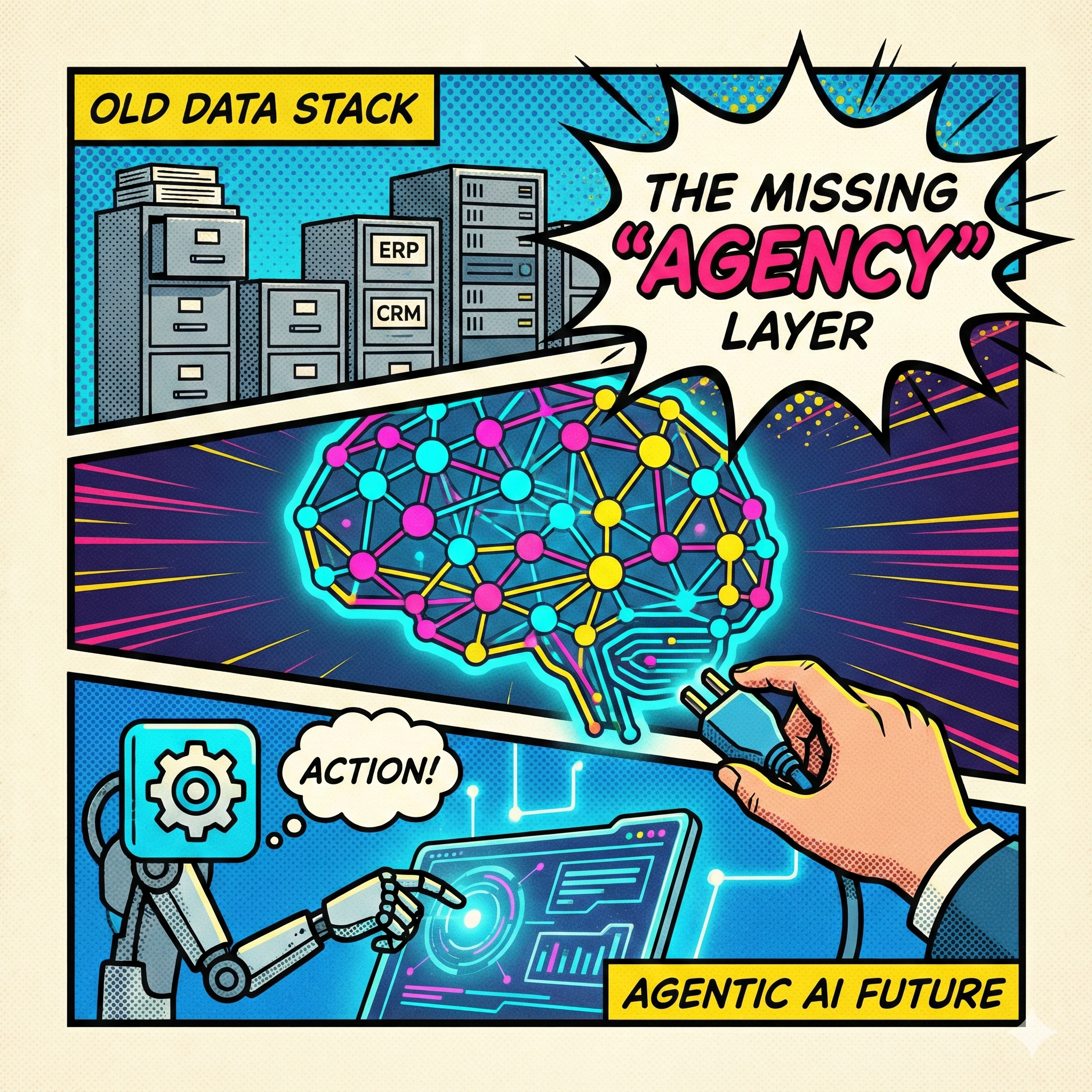
The Missing Layer: Why Enterprise Agents Need a "System of Agency"
We are witnessing a critical transition in artificial intelligence. The move from Generative AI (which creates content) to Agentic AI (which executes tasks) changes everything about how organizations must approach their AI infrastructure.
Most organizations are attempting to build autonomous agents on top of their existing "Systems of Record”; ERPs, CRMs, and legacy databases designed decades ago. These systems excel at storing state: inventory levels, customer records, transaction histories. But they were never designed to capture something equally critical: the reasoning behind decisions.
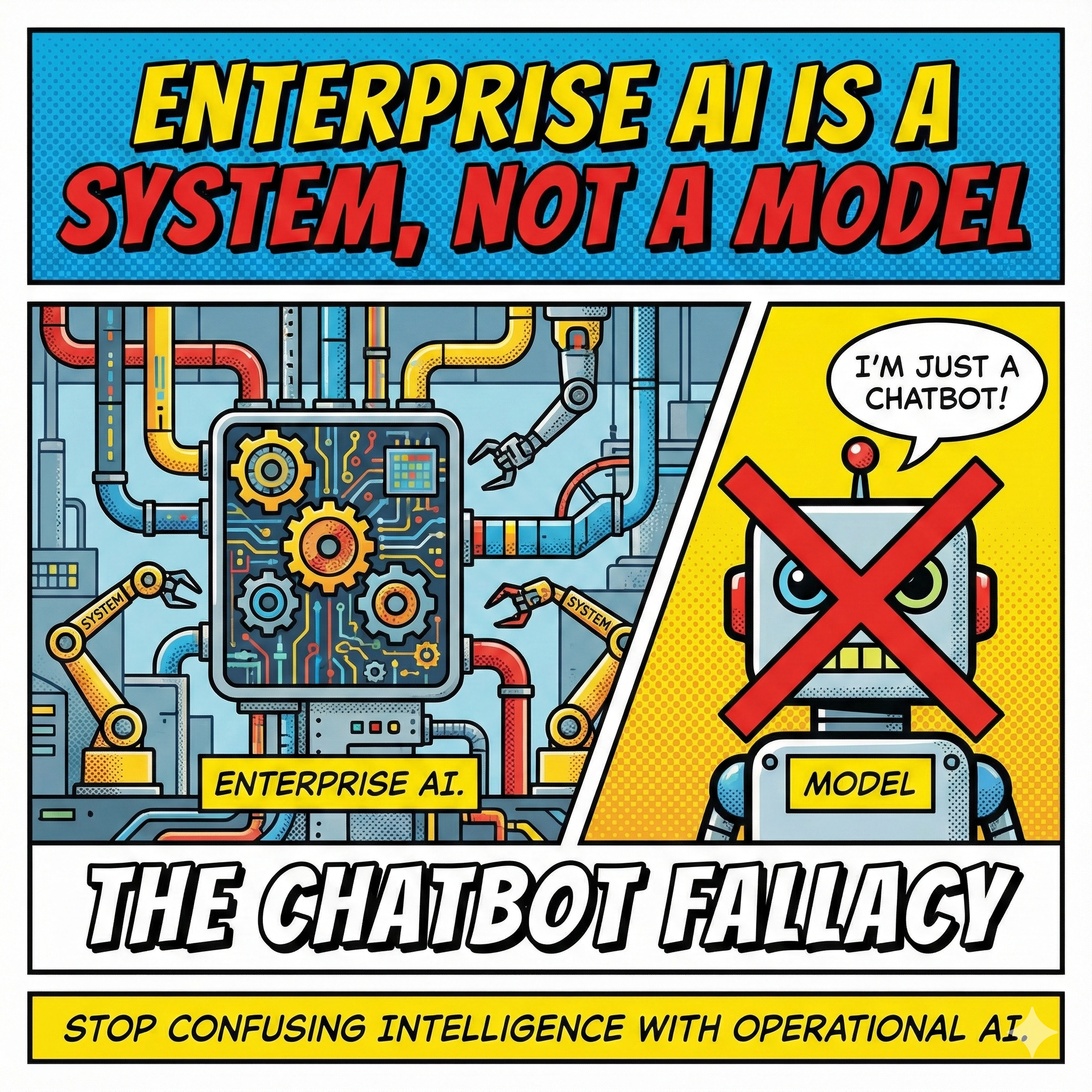
Enterprise AI Is a System, Not a Model
Many enterprise leaders are making a costly category error. They're confusing access to intelligence with operational AI.
The distinction matters because public chatbots and foundation models are optimized for one set of outcomes while enterprise AI requires something entirely different. ChatGPT, Claude, and Gemini excel at general reasoning, conversational fluency, and handling broad, non-contextual tasks. They're designed to answer questions, generate content, and provide insights across virtually any domain.
Enterprise AI operates in a different universe. It must execute inside real workflows, maintain accountability and governance at every step, and deliver repeatable business outcomes. The goal isn't to answer questions. It's to orchestrate work.

Conflict Resolution Playbook: How Agentic AI Systems Detect, Negotiate, and Resolve Disputes at Scale
When you deploy dozens or hundreds of AI agents across your organization, you're not just automating tasks. You're creating a digital workforce with its own internal politics, competing priorities, and inevitable disputes. The question isn't whether your agents will come into conflict. The question is whether you've designed a system that can resolve those conflicts without grinding to a halt or escalating to human intervention every time.

Beyond Bottlenecks: Dynamic Governance for AI Systems
As we move from single Large Language Models to Multi-Agent Systems (MAS), we're discovering that intelligence alone doesn't scale. The real challenge is coordination, orchestration and governance. Imagine you've deployed 100 autonomous agents into your enterprise. One specializes in customer data analysis. Another handles inventory optimization. A third manages supplier communications. Each agent is competent at its job. But when a supply chain disruption hits, who decides which agents act first? When two agents need the same resource, who arbitrates? When market conditions shift, how do they reorganize without human intervention?

Hybrid Collaboration Chanels: Where Cooperation Meets Competition in Agentic AI Workflows
The traditional view of AI collaboration assumes a simple model: agents work together toward a shared goal, following predetermined protocols and maintaining consistent roles throughout their interaction. This linear approach may have sufficed when AI systems operated in isolation or handled straightforward tasks, but it falls short in today's complex multi-agent environments.
The reality of modern agentic AI workflows is far more nuanced. Just as human organizations navigate partnerships that blend cooperation with healthy competition, AI agents increasingly need the flexibility to shift between collaborative and competitive modes depending on the task at hand.
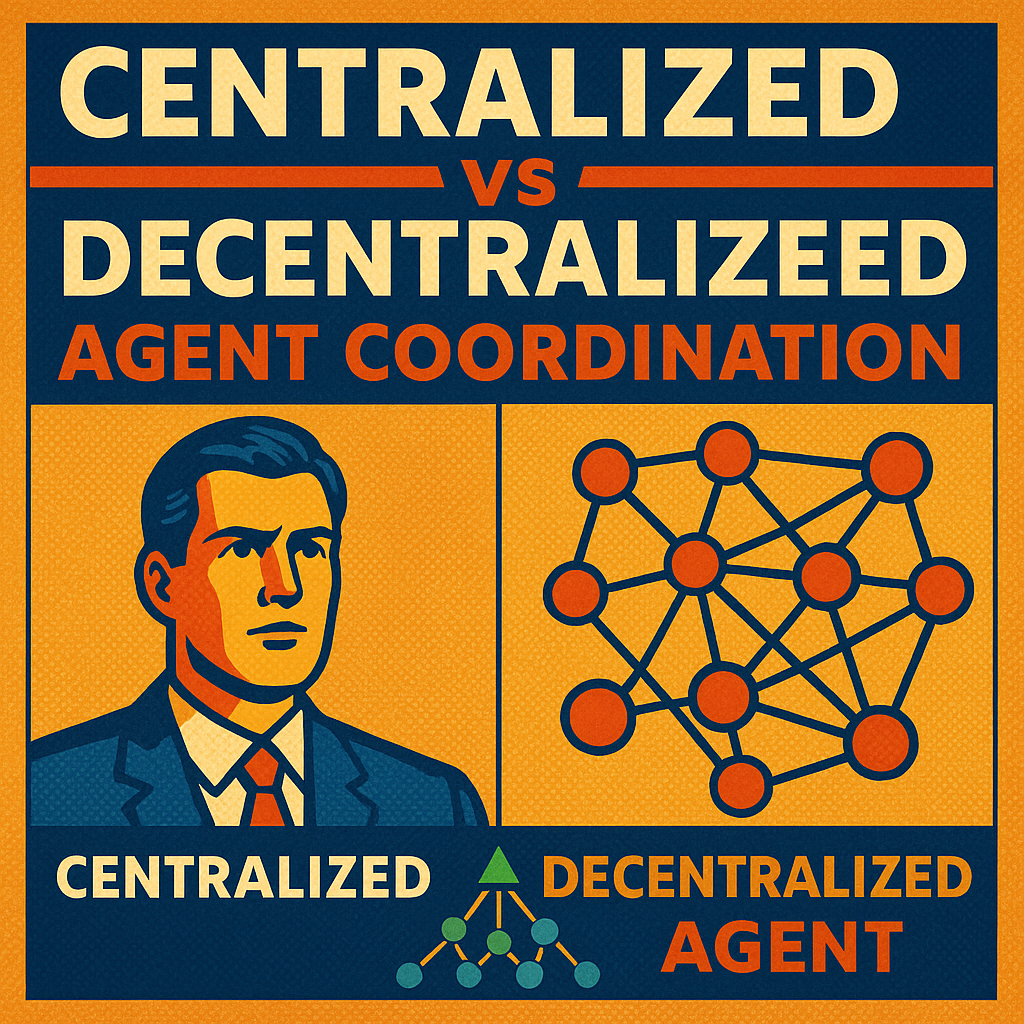
Centralized vs Decentralized Agent Coordination: How Orchestration Choices Shape Autonomy, Resilience, and Emergent Behavior
As organizations move from assistive AI to building full digital workforces, a critical architectural question emerges: how should agents coordinate with each other? The decision between centralized orchestration and decentralized coordination isn't just a technical detail. It shapes everything from system resilience to innovation capacity, from operational predictability to adaptive problem-solving.

Decentralized Governance Models for Agentic AI: DAOs, Blockchain, and Beyond
What if your digital workforce could vote on operational priorities or enforce ethical boundaries through code, not committees? As artificial intelligence evolves from passive tools into autonomous agents capable of independent decision-making, we're entering uncharted territory. These agentic AI systems operate across networks, enterprises, and entire ecosystems, raising urgent questions about control, accountability, and trust.
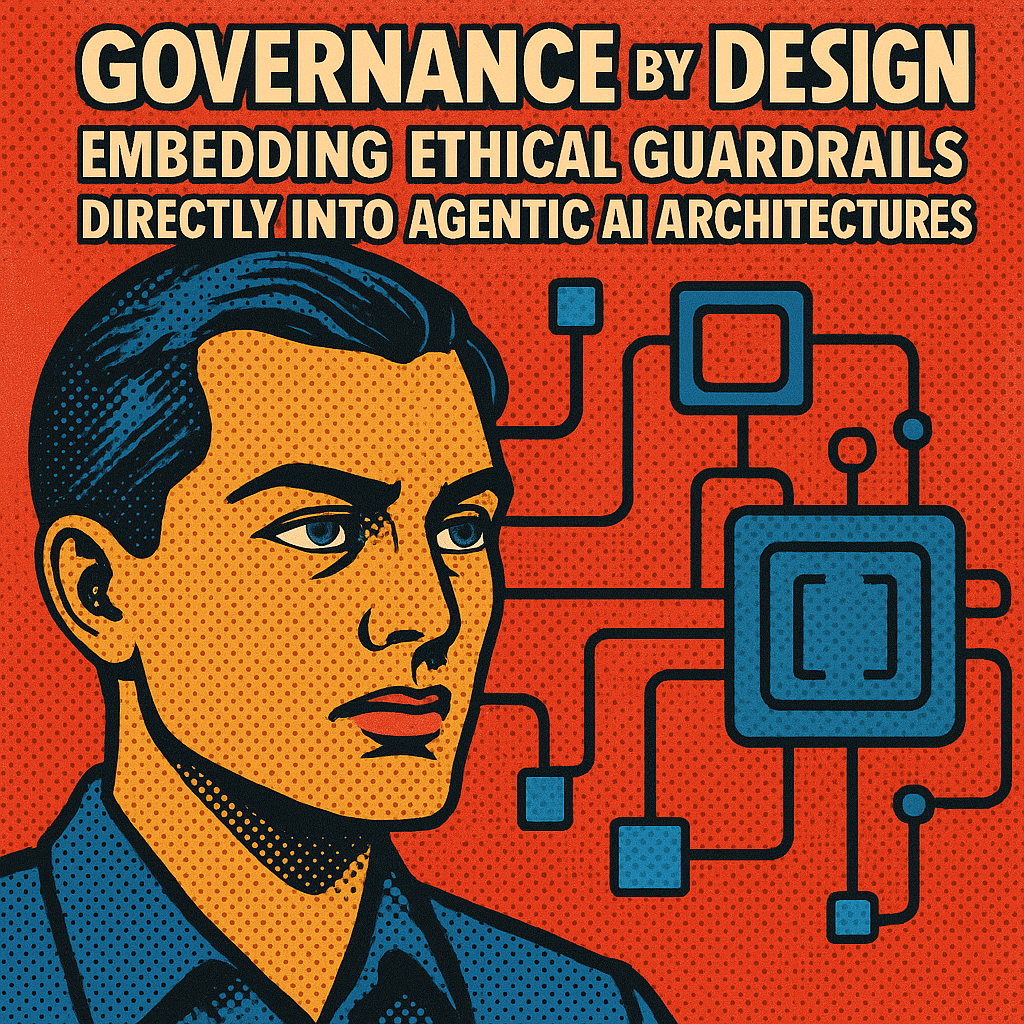
Governance by Design: Embedding Ethical Guardrails Directly into Agentic AI Architectures
As artificial intelligence systems gain increasing levels of autonomy, the traditional approach of adding compliance measures after deployment is proving inadequate. We need a new approach: Governance by Design; a proactive methodology that weaves ethical guardrails directly into the fabric of AI architectures from the ground up.
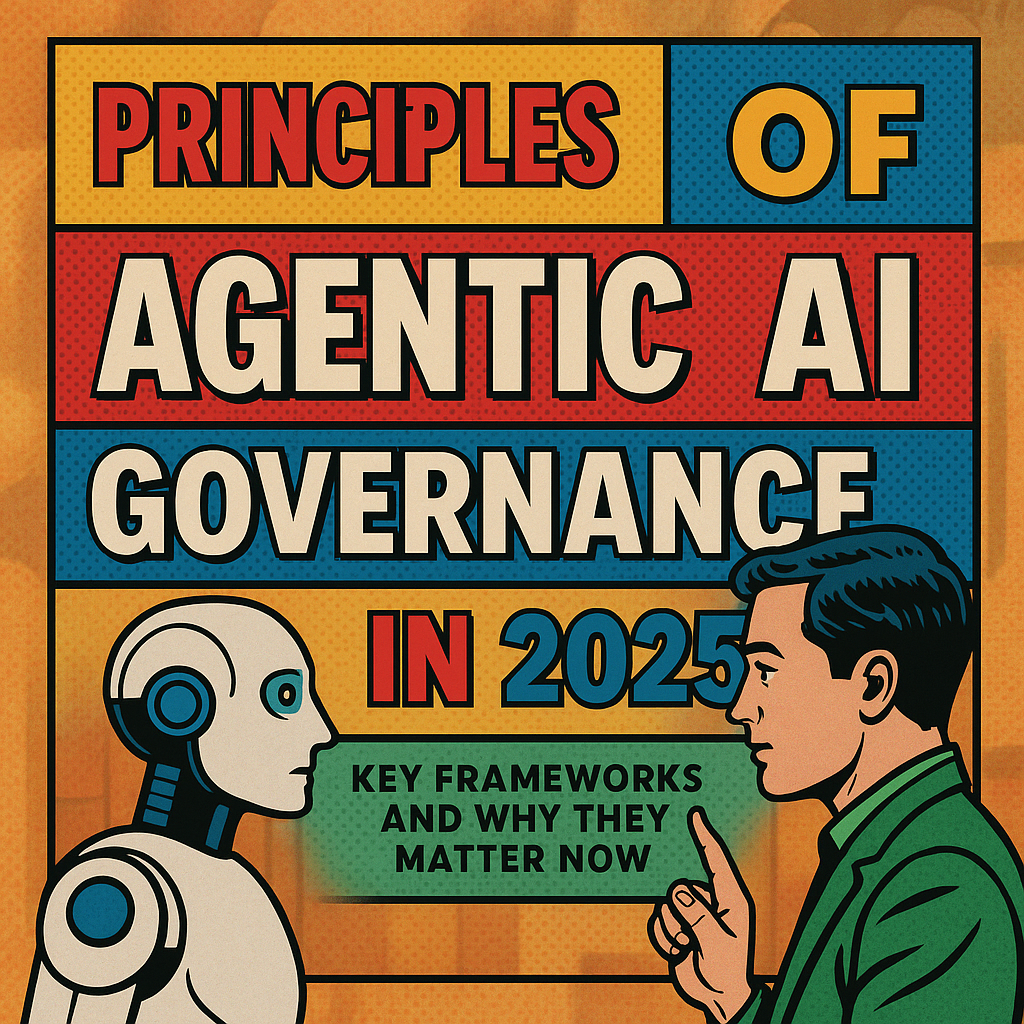
Principles of Agentic AI Governance in 2025: Key Frameworks and Why They Matter Now
The year 2025 marks a critical transition from AI systems that merely assist to those that act with differing levels of autonomy. Across industries, organizations are deploying AI agents capable of making complex decisions without direct human intervention, executing multi-step plans, and collaborating with other agents in sophisticated networks.
This shift from assistive to agentic AI brings with it a new level of capability and complexity. Unlike traditional machine learning systems that operate within narrow, predictable parameters, today's AI agents demonstrate dynamic tool use, adaptive reasoning, and the ability to navigate ambiguous situations with minimal guidance. They're managing supply chains, conducting financial trades, coordinating healthcare protocols, and making decisions that ripple through entire organizations.
